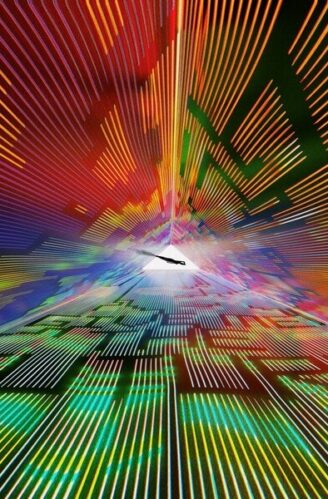Books x Bastille

Dearest Readers,
Let me set the scene: It’s 2013–the sun is shining, you’re wearing way too many layered t-shirts, and “Pompeii” by Bastille is blasting on the radio for the fourth time that hour.
No? Just me?
Luckily for all of us, “Pompeii” did not follow in the tradition of one-hit wonders and was just the first of many great hits released by the English pop rock band. Their latest album, Give Me the Future, released a couple weeks ago and includes their most recent hit, “Shut Off the Lights.”
Now, what does any of this have to do with books?
A lot, actually! Not only does Give Me the Future explore Bastille’s own musings on technology, reality, and how the two interact, it’s also chock-full of references to some exceptional science fiction books! The books (and my musings on them) can be found below!
1984 by George Orwell
Perhaps the most famous of the referenced books, 1984 paints a dystopian future in which government is totalitarian and surveillance is omnipresent. It follows Winston Smith, a lowly worker employed to rewrite historical documents who desperately wishes to overthrow the government. Orwell wrote 1984 as a warning against propaganda, regimentation, and the erasure of history, and many terms used in the book, most notably “Big Brother,” have become a part of our regular lexicon.
Island by Aldous Huxley
Writing in direct contrast to his own novel Brave New World, Aldous Huxley crafts the idea of the ultimate utopia in his book Island. In Island, Englishman Will Farnaby deliberately wrecks his ship in order to gain entry to the Kingdom of Pala, located on an island between Sumatra and the Andaman Islands. The society he finds there is utopic, with a culture that blends western science and eastern Buddhism, values multifaceted education, and believes the key to overcoming suffering and death is to live wholly in the moment.
Do Androids Dream of Electric Sheep? by Philip K. Dick
Philip K. Dick’s novel, Do Androids Dream of Electric Sheep?, also known by its revised title Blade Runner, is an exploration of morality and what it actually means to be human. The book follows Rick Deckard, a bounty hunter assigned to “retire” androids who have escaped from Mars and fled to Earth. In his hunt for the androids, Deckard comes to learn that the androids are almost entirely indistinguishable from organic human beings and that both have been killed in the process.
Brave New World by Aldous Huxley
In addition to Island, we have another reference to a Huxley work, this time to his work of dystopian fiction, Brave New World. This story examines a future in which humans are engineered in artificial wombs and later sorted into predetermined castes based on their intelligence and work. Natural-born humans are viewed as “savages” and live in exile on reservations around the world.
Total Recall by Piers Anthony
Based on the story, “We Can Remember It for You Wholesale,” by Philip K. Dick, Total Recall blurs the line between dreams and reality. When Douglas Quail, the novel’s protagonist, is having a fake memory installed, he discovers that the nightmares he’s been having of covert missions on Mars are his true memories that have been repressed by his employers. His life is completely overturned and he is left to question all that he believed to be true.
These are but a few of the incredible books that make the science fiction genre so compelling. If you’re wanting sci-fi that’s a touch more recent and/or diverse, I highly recommend checking out the works of Ursula K. Le Guin, Octavia Butler, Becky Chambers, and Nnedi Okorafor, to name a few.
Happy Reading!
Judy Beaulume
< Previous Post Next Post > Tags: books, music, science fiction